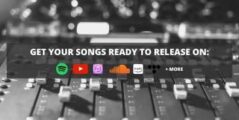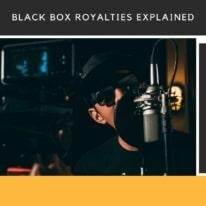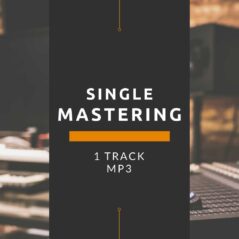Mixing vs Mastering – The Basics to an Awesome track
Nicholas
Let's talk about mixing vs mastering and how to get started on your journey as a recording artist.
Let's say you recorded a song and you need a way to make it sound better. That's where mixing and mastering come in, but what is mixing and mastering?
Sometimes a song you've made can sound muddy or under the weather. A studio engineer can improve this with mixing and mastering your track. If you want to make music in a bedroom studio, understanding the process can benefit you in the long run.
It can be a challenge to tell mixing and mastering apart, but they are quite different, and here's why:
Mixing always comes before mastering
To start, Mixing is the first part of the process. You start by focusing on what tools you can use to remedy your song. Whereas Mastering focuses on getting any last adjustments into the track. To make it sound better however your audience listens.
I have been mixing and mastering for about two years, and it has been a learning experience for sure! Learning to mix and master can be challenging, but fun if you keep your patience. I'll get started with the basics and then move onto the lesson. Let's dive into mixing vs mastering.

Mixing Basics
This is where you get the levels of your recording set.
Mixing is the stage in the recording process that is used to adjust individual elements in a song. The mix is a cleaning stage. Mixing engineers adjust the elements of individual tracks with EQs, compression, faders, and panning. Grasping your tools in your mix is important because you cannot move forward into mastering if the mix is incomplete.
Mastering Basics
This is the process of finishing your song, making it ready to be released on all mediums. It will make it so your song can be played in the studio, clubs, headphones and the car. Always sounding good!
Basically, it is fine-tuned adjustments that are made like loudness, eq, and "tone" or "place" of the entire track. You don't want to master ever in your mix. Using the Master channel is where a lot of learners kind of go south.
Ideally, you would not Master your own track. This is because to get the best results it is good to have a fresh set of ears listening. Mastering can be a tricky thing to wrap your head around, but I am going to share a little insight.
The best way to have your songs mastered is by an experienced Mastering engineer.

Moving on from the basics of mixing vs mastering, let's dive a little deeper.
Mixing vs Mastering - Breaking Down Mixing
There are certain ideas you need to keep in mind before you start the mixing process. Try to imagine the track as an orchestra performance, and each instrument has an assigned seat. That's also how mixing works. You don't want certain elements in the back, and you don't want certain elements too far in the front.
If you are just getting started with mixing, allow yourself room for growth. Employ the mindset that it's your job to bring out each sound and section using your daw's mixing capability. A lot of mixing can be generated for you with presets or you can mix manually.
It is not impossible to get the correct mix in your home studio, but there are techniques you must master.

Mixing 101
Mixing can be a challenging task at first, but that doesn't mean it can't be overcome.
I want to simplify some tools that every DAW has.
There are a lot of ways you can get a mix to do exactly what you need.
If you need a sound to be more in the background, try reverb. If you want something brought to the front, you can add eq and remove or reduce reverb.
You can use panning or mono tracks to pull in a sound or a stereo track to expand your sound. Keep in mind that a mix is the ONLY time you get to perfect any mistakes in a song.
EQ
EQ is a good tool that can fix a lot of things in a recording. A big difference EQs can bring is eliminating the low end. Low end is a rumble of heavy bass that can easily way down any mix. The low end is extremely difficult to hear unless you know how to use an EQ.
For example, the picture below demonstrates when you cut out the low end in a guitar channel. Notice how on the left end, the frequency visualizer is brought down. You can either do this manually or with automation to attach closer to the sound wave in the middle.

Volume and Panning
Now, you want to focus on the volume. Every section needs its volume level. Keep in mind, when mixing, you can adjust volume levels on separate tracks.
Lead synthesizers and vocals tend to be brought out and emphasized in front while drums can blend into your back. Be careful with drums, because you don't want to exclude them completely. I commonly use automation within the daw to lure loudness and volume. Do this along with panning to bring out each snare and hi-hat. I would also point out is a lot of songs tend to sound bad because the low end is bad. Or it wasn't helping with drums and bass. It's okay to add some breathing room for a drum track, in my opinion.
Mixing vs Mastering - Mastering 101
Mastering is the 1% left before your release. How will the song sound by all of the other songs on the album? Are the volumes levels the same? Does a couple of songs render any stereo issues? You want to make sure your panning and tracks are set to your liking in a mix.
In mastering, the goal is to get a consistent finished product. There are a lot of great mastering tools out there for anyone ready to learn!
Ozone has a great selection of mastering tools for free and for sale. Every link I reference in this article uses Ozone to cut out any confusion of what to use!
Limiting
Limiting is a way you can adjust the volume to the overall track. If you have noticed that your track is soft or too quiet, limiting can help there. But you don't want to go heavy on it because it will distort any kicks or snares you've previously cared for in your mix.
I want to share with you someone I found on YouTube that shares a lot of mastering software and tips to help you get started even more!
Here is a link to a video that will help you with limiting.
I will post another link for the entire lesson on mastering here.
Here's what he posted about volumes peaks:
Ceiling - Set at least -1.0dB True Peak. Potentially up to -2dB True Peak Ensure you select "True Peak" - This is essential. Average LUFS - Hit at least -14 to avoid Spotify limiting and then push it louder to your own preferences.
In The Mix from YouTube
Multiband Compression
If you have never used a multiband compressor before, it looks very strange when you open one up for the first time. A Multiband compressor is known for a 4-split screen to independently edit transients and achieve adequate hi-end and low end. Multiband compression can be a daunting subject even for me! There are several tricks you can apply in your master that cut out any unwanted noises in your track with multiband compressors and EQs. EQs do not always get the job done, and that's where a multiband compressor can save the day.
Check out this great multiband video here.
Mixing vs Mastering - Wrap up
Hopefully, you have learned something about mixing vs mastering today. Mixing and mastering can be a fun experience if you need to take your music to the next level.
All songs you hear on the radio or watch on TV have had professionals help with the Mixing and Mastering process.
If you need help, be sure to check out our Mixing and Mastering service providers.
For Mixing, engineers click here
Need Mastering engineers click here
You might also be interested in these free Vocal Presets. Every download really helps us to grow Indiy and bring you great new content and services!
DO YOU MAKE MUSIC? THE INDIY MISSION
Indiy exists to help people create great music!
Did you know 40 thousand songs are uploaded to Spotify every day!
We want to hear about what you do, what makes you special and share it with the world!
Submit to be interviewed for Indiy Spotlight, its 100% FREE Just click here for your music interview
If you are working on new material, we have partnered with Audio Mastering to offer mastering on your next release from just £2 per song (approx $2.75 USD) - Check the offer out here
Search all articles
Nicholas
Nicholas Bay is a musician, content writer, producer, and coffee drinker. He is the Co-Founder of Cr3at3 Cultur3 Productions, a non-profit for local artists and musicians. His apprenticeship with Indiy started in April 2020 and conjoins with their mission to demystify the music industry to start your career in music. He works out of Los Angeles and remotely for artist that need exposure and support for their products. If you would like to network, Get in Touch!
Follow Indiy











